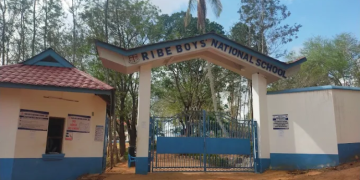The National Treasury, under President William Ruto’s administration, has issued a strict directive requiring all government entities to submit logbooks for motor vehicles and other transport assets by August 30, 2025.
This move, outlined in National Treasury Circular No. 6 of 2025 dated June 30, 2025, aims to rectify long-standing issues of asset mismanagement, loss, and misuse of public resources.
Mismanagement history
The National Treasury, according to the circular signed by Cabinet Secretary John Mbadi, has attributed the move to the widespread gaps in asset management, including missing logbooks, abandoned vehicles, and disputes over ownership.
These issues have led to financial losses and hindered the proper disposal of unserviceable assets.
“Some government vehicles are rotting in garages without documentation, costing taxpayers in demurrage charges,” the circular notes.
The assets covered include motor vehicles, motorcycles, three-wheelers (tuk-tuks), plant and machinery as well as project and leased vehicles.
The National Treasury has observed that frequent transfers of transport assets between agencies often result in lost or misplaced ownership documents, significantly hindering proper management.
Furthermore, the lack of logbooks has compounded the risk of loss or misuse of government transport assets, with unserviceable vehicles often being abandoned in garages or parking yards, leading to an unnecessary burden on taxpayers.
New directives and deadlines
Principal Secretaries, Accounting Officers, Chief Executive Officers of State Corporations, and County Secretaries are now required to undertake a comprehensive reconciliation process and submit a status report on the ownership of all Government Transport Assets under their jurisdiction to the Cabinet Secretary, National Treasury.
Entities must acquire logbooks for all Government transport assets
Original logbooks for relevant public entities, along with copies, are to be submitted to the National Treasury or County Treasury for custody by the Accounting Officers.
Where an entity is a body corporate, the logbook must be registered under the name of the entity and kept by the Accounting Officer.
For assets lacking logbooks or where physical custody is not with the asset, a report must be submitted to the National Treasury.
Information on transport assets transferred to other public agencies, including term period and ownership documents, must be provided.
The status report needs to categorize transport assets (e.g., motor vehicle, plant and machinery, three-wheeler/tuk-tuk) and classify them (e.g., lorry, bus, saloon car).
Crucially, duly filled Annexes I, II, III, IV, V, VI, and VII from the circular must accompany the submission.
Also Read: Murkomen Orders Crackdown on Boda Boda Gangs After Matatu Torched in Vihiga
These annexes provide templates for reporting all transport assets, logbooks with no transport assets, transferred assets, project assets, leased assets, disputed assets, and unserviceable assets.
Handling Unserviceable and Transferred Car Logbooks
Unserviceable transport assets that lack logbooks or are parked in garages must be reported under Annex VII.
Following this, the process to acquire logbooks and dispose of these assets must commence in compliance with the Public Procurement and Assets Disposal Act 2015.
Any transfer of Government transport assets, whether permanent or temporary, must also be communicated to the National Treasury or County Treasury for record-keeping purposes.
The circular explicitly states that Section 4.9 of the Policy on Assets and Liabilities Management guides the public sector in acquiring ownership documents for all assets under its jurisdiction.
Also Read: Ruto Jets Out of the Country
The national audit also highlights systemic problems that amplify asset loss, such as large pending bills (Ksh194.7 billion reported) and unsupported expenditures (over Ksh2.04 billion in the audit period).
Evidence from the audit showed that Kisii County recorded a Ksh30 million fuel payment that was never drawn by vehicles.
Nairobi County paid insurance for non-existent vehicles under a KSh129,713,854 insurance contract. Audits revealed 145 idle vehicles and 402 non-operational vehicles across various county fleets. Additionally, there were instances of vehicles being held in garages due to unpaid bills and accidents/written-off claims, with no evidence of insurer payment.
DCI operations in 2025 recovered multiple stolen vehicles and arrested suspects linked to syndicates, underscoring theft as a tangible channel for loss.
Follow our WhatsApp Channel and X Account for real-time news updates.





















































![Senator Allan Chesang And Chanelle Kittony Wed In A Colourful Ceremony [Photos] Trans Nzoia Senator Allan Chesang With Channelle Kittony/Oscar Sudi]( https://thekenyatimescdn-ese7d3e7ghdnbfa9.z01.azurefd.net/prodimages/uploads/2025/11/Trans-Nzoia-Senator-Allan-Chesang-with-Channelle-KittonyOscar-Sudi-360x180.png)




















